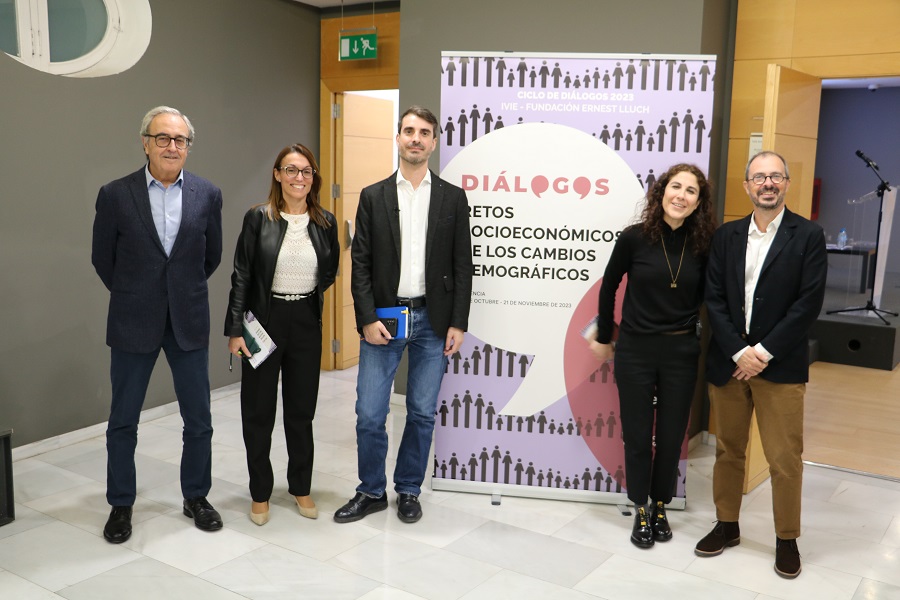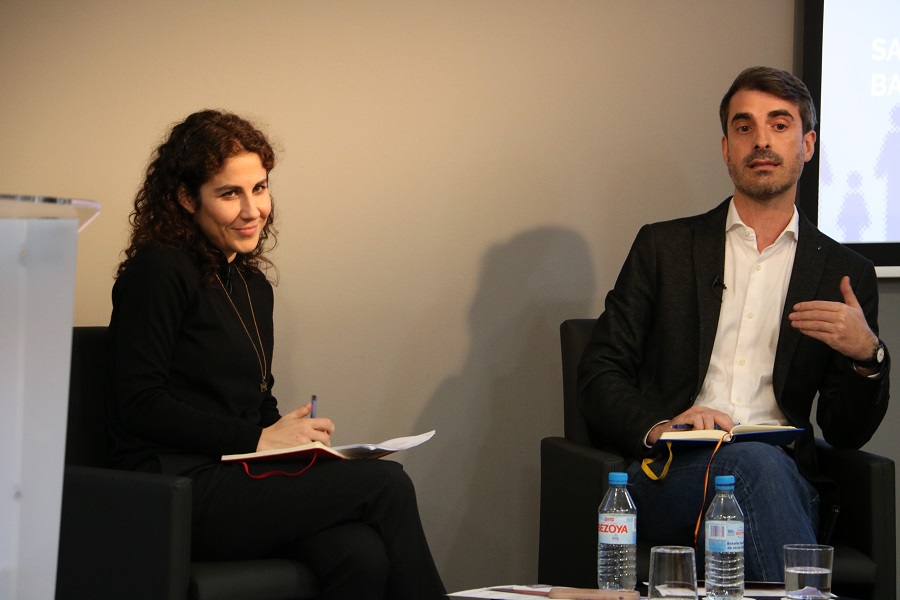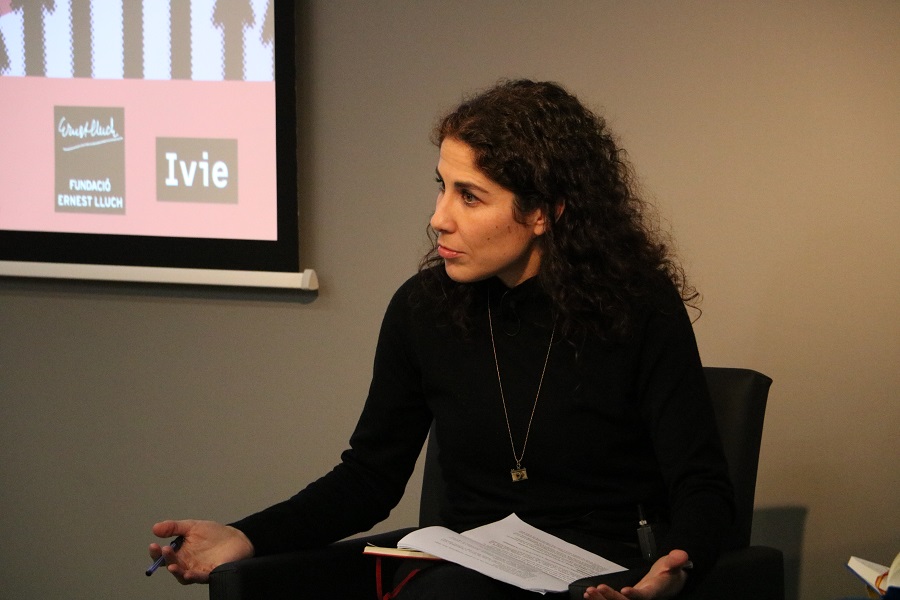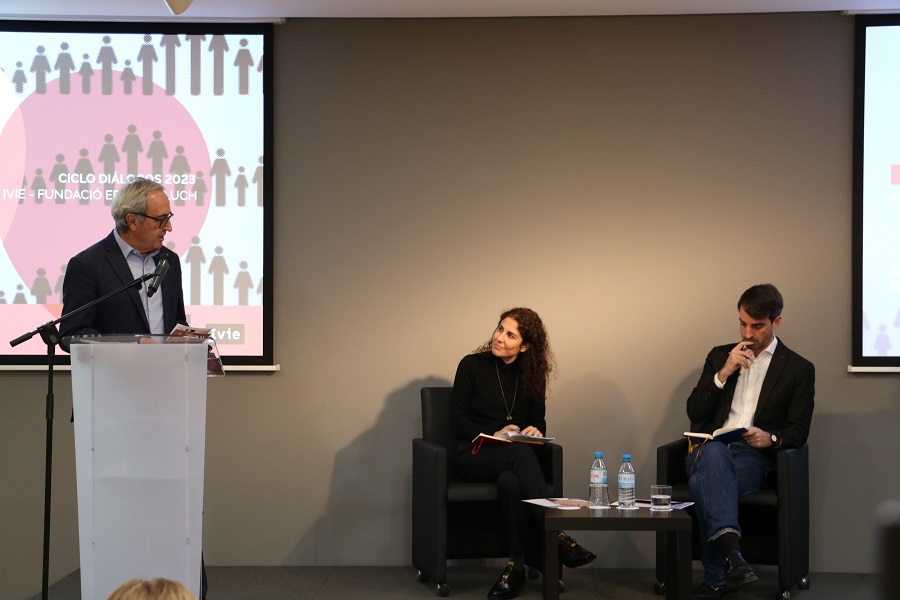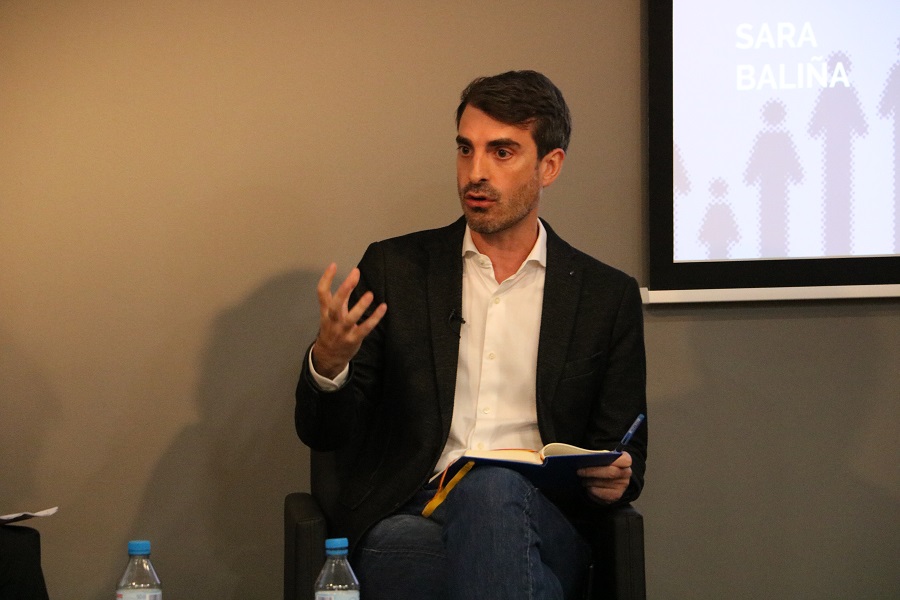Esta web utiliza cookies para que podamos ofrecerte la mejor experiencia de usuario posible. La información de las cookies se almacena en tu navegador y realiza funciones tales como reconocerte cuando vuelves a nuestra web o ayudar a nuestro equipo a comprender qué secciones de la web encuentras más interesantes y útiles.
News
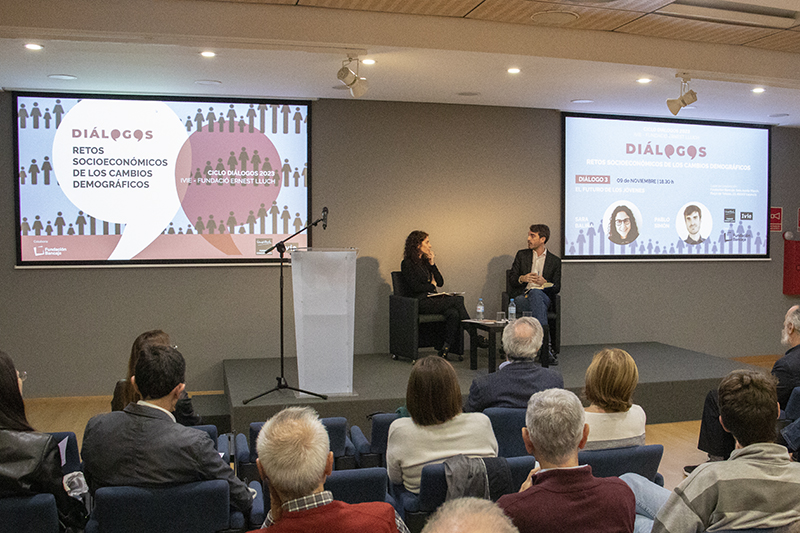
Pablo Simón: "The political economy in our country is very biased in favor of older people, often leaving young people out"
Sara Baliña and Pablo Simón talk about young people who they consider to be the "most pessimistic young generation in history"
Valencia, November 10th of 2023. The series of dialogues organized by the Ivie and the Ernest Lluch Foundation, “Socioeconomic challenges of demographic change”, continued with a third talk entitled The Future of Young People in Spain, with Pablo Simón, Professor of Political Science at the Universidad Carlos III de Madrid, and Sara Baliña¸ Deputy Director of the National Office of Foresight & Strategy (ONPE) of the Spanish Government. During their discussion, Pablo Simón contended that Spanish politics are biased in favor of the elderly, often forgetting about younger generations, which he referred to “a minority group in the population pyramid, that rarely vote, are very evanescent and become main figures of election campaigns only when results are tight”.
In fact, political oblivion is one of the factors affecting the situation of Spanish youths, as analyzed by the two speakers, who addressed a range of topics affecting young ones, such as the labor market, housing, education, relationships with older ones and their perception of reality. Currently, three out of four young people think that they will live in poorer conditions than their parents, stating that “we are facing the most pessimistic young generation in history”, since, until now “each generation has always lived better than the previous one”, confirmed Simón.
When we analyze the evolution of the average income of the different age cohorts, the drop in income experienced by young people has been very significant, says Pablo Simón. Moreover, there are other factors that worry today’s youths besides financial security. Baliña concurred that their perception of labor precariousness in the first years of work has contributed to their pessimism and may even turn it into a chronic issue.
One of the biggest issues affecting younger generations is housing. The Deputy Director of OPNE pointed out that 15 years ago, 60% of young people owned a home, a percentage that has currently dropped to half. It is estimated that a young person has to spend more than eight years of his or her salary in order to buy a house. This means that, emancipation rates have decreased since the Great Recession, and have continued to drop, which has an impact on productivity and birth rates.
Both specialists emphasized that, along with housing, finding work is yet another big challenge for young people, considering that the rules of the game have changed. As a result of the unstable nature of the labor market, new generations have a different view of work than that of their predecessors. In addition to a well-paying job, young ones aspire to having time for leisure activities and other personal endeavors. “Work is changing, and in the future, this could have very important consequences,” adds Baliña.
The change in work expectations adds to another decisive factor in the labor system: polarization of young people themselves. “Some young ones have excellent training, jobs and aspirations for the future; while others known as NEET (young people who are “Not in Education, Employment, or Training” or ‘ninis’ in Spanish) do not work or look for work. “As a society we must not forget the second group, instead we have to integrate them in the economy,” states Baliña. Both Baliña and Simón agree that education is the key solution to this problem.
“Spain has changed a lot in the last 40 years in terms of education, but it could be said that we have taken the easy road, and there are many challenges ahead to improve training and, consequently, the employability of young people,” states Pablo Simón. Similarly, Sara Baliña emphasized the disparities that persist due to schooling, “there is an educational premium, because those who study face better future working conditions”. She suggests that one way to close the educational gap is to act as early as possible, between the ages of 0 and 2 years, which is when inequalities begin. “Spain spends up to 5 times less than other countries on early education and that is where we have a challenge”, she adds. In addition, the two focused on the need to adapt the school structure to create reinforcement programs and they raised the issue of the need to create additional work training opportunities to increase employability, like dual vocational training.
Regarding the potential generational divide between the young and the old, the participants do not perceive it as a source of conflict. Instead, Simón stated that “we have to escape from the idea of generational conflict; and create a climate of cooperation and alignment between age groups”. In agreement, Baliña suggests that there is a need “to reflect on how our welfare state works to ensure a good quality of life for everyone”.


